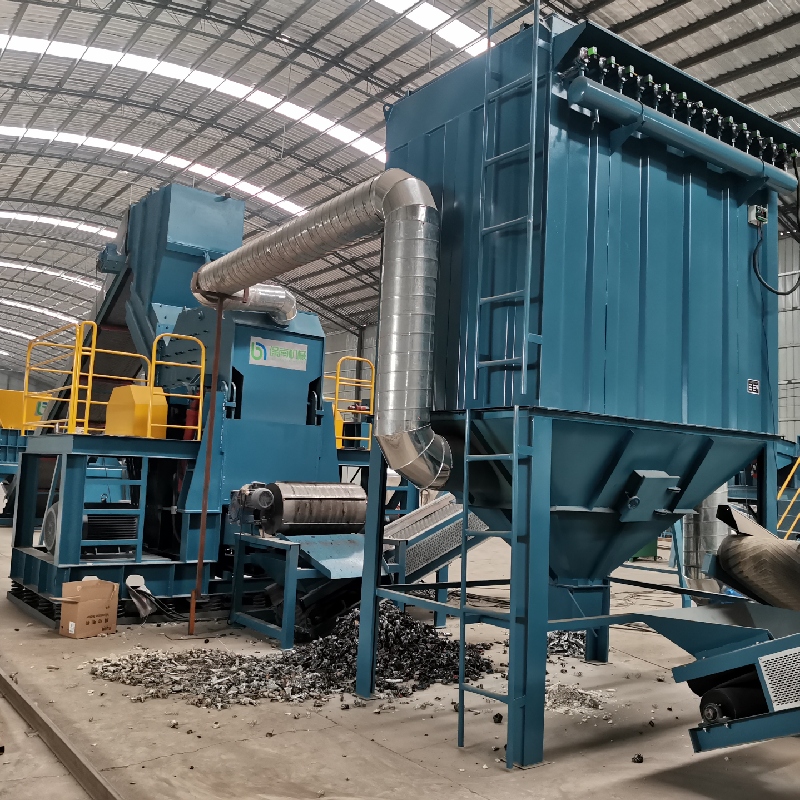

ಡಿಸೆ . 13, 2024 04:46 Back to list
Understanding Eddy Current Separator Machines An Overview
Eddy current separators are innovative pieces of equipment used primarily for the efficient separation of non-ferrous metals from other materials. They find utility in various industries, including recycling, mining, and waste management. The ability to segregate metals like aluminum, copper, and zinc from a mixture makes these machines indispensable in promoting sustainability and enhancing material recovery processes.
How Eddy Current Separation Works
The principle behind the operation of an eddy current separator is based on electromagnetic induction. The machine consists of a conveyor belt that transports the material over a high-speed rotating magnetic rotor. This rotor generates alternating magnetic fields as it spins. When non-ferrous metals pass through this magnetic field, they experience a rapid change in polarity, which induces eddy currents in the metal. According to Lenz’s Law, these eddy currents create their own magnetic fields that oppose the original field from the rotor.
As a result, the non-ferrous metals are repelled away from the rest of the material stream, effectively separating them. The remaining non-metallic materials or ferrous metals fall away in a separate stream. This selective separation allows for higher purity rates of recovered metals, which is crucial in recycling operations where the quality of the recovered materials significantly impacts their market value.
Applications in Various Industries
Eddy current separators are widely used in several industries. In the recycling sector, they play a vital role in sorting aluminum cans, copper wires, and other metal debris from household waste or industrial scrap. This capability significantly enhances recovery rates and reduces landfill contributions, aligning with global sustainability goals.
In the mining industry, these separators can be used to extract valuable metals from ore or tailings, contributing to the efficient processing of raw materials. They help in improving the profitability of mining operations by ensuring that more metal is recovered from the mined materials.

Moreover, in the manufacturing industry, eddy current separators can help reduce material waste during production processes, promoting a circular economy where products are reused and recycled rather than discarded. This aspect is increasingly important as companies strive to meet regulatory requirements and enhance their corporate social responsibility initiatives.
Advantages of Eddy Current Separators
One of the significant benefits of using eddy current separators is their efficiency and effectiveness in metal recovery. They can handle a wide range of materials and separate metals of varying sizes and shapes. Furthermore, their operation is continuous, allowing for high throughput.
Eddy current separators also require minimal maintenance compared to conventional separation methods. They generally have fewer moving parts and do not rely on fluids or other consumables, leading to lower operational costs over time.
Challenges and Limitations
Despite their advantages, eddy current separators come with some challenges. They are particularly effective at separating non-ferrous metals but may struggle with mixed materials that include ferrous metals or plastics. Additionally, the initial investment for purchasing and installing these machines can be substantial, which may deter some businesses from adopting this technology.
Conclusion
In summary, eddy current separator machines represent a crucial technology in the ongoing efforts to improve recycling processes and material recovery. Their ability to efficiently separate non-ferrous metals contributes to environmental sustainability by reducing waste and enabling the cycling of valuable materials back into the supply chain. As industries continue to innovate and seek ways to optimize resource use, eddy current separators are likely to become even more prevalent in the years ahead, highlighting their importance in modern industrial operations.
Latest news
Troubleshooting Common Eddy Separator Problems
NewsJul.04,2025
The Role of Metal Recycling Plants in Circular Economy
NewsJul.04,2025
The Impact of Recycling Line Pickers on Waste Management Costs
NewsJul.04,2025
Safety Features Every Metal Shredder Should Have
NewsJul.04,2025
How Industrial Shredders Improve Waste Management Systems
NewsJul.04,2025
How Cable Granulators Contribute to Sustainable Recycling
NewsJul.04,2025